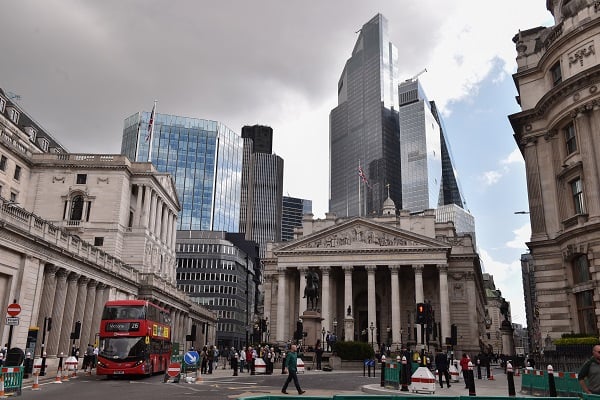40% of panellists predict the latest rise in the base rate could contribute to a housing market crash.
70% of experts predict that the base rate will be 5.5% or higher by the end of 2023.
Experts agree that the UK cannot catch up with the US or Europe in 2023 when it comes to fighting inflation.
Experts are divided on whether the latest base rate rise by the Bank of England will lead to a housing market crash in the UK, according to a panel of 10 experts put together by personal finance comparison site finder.com.
The panel, which features opinions from academics, economists, mortgage and savings experts, were asked whether a decision to increase the base rate in the next MPC meeting could contribute to a housing market crash, and 40% of the experts believed that it could.
Kate Anderson, deputy editor at finder.com shared concerns that another base rate increase could lead to the demise of the buy to let market as “landlords may find it unprofitable to continue due to increasing interest rates and sell up, creating downward pressure on house prices and leaving renters with even fewer options.”
Charles Read, fellow in economics at the University of Cambridge agreed that a housing market crash is likely, adding that “we could see house prices fall by 5% or 10%, but the price of everything else rise 20% or more, resulting in a real-terms crash of 20%-30%.”
Konstantinos Lagos, senior lecturer in business and economics at the University of Sheffield Hallam noted that demand contraction of the mortgage market “will become even more prominent as more and more fixed mortgage agreements come to an end and homeowners will need to re-mortgage at a much higher rate. UK house prices should eventually reflect this reduction of household purchasing power.”
However, the remaining 60% of experts predict that the UK will avoid a crash. Alan Shipman, senior lecturer in economics at The Open University explained that “A crash will be avoided because of the drop in construction activity starting to limit supply of homes for sale, cash-rich property investors buying on weakness, and the recent rise in average rents restoring the appeal of buying-to-let.”
David McMillan, professor in finance at the University of Stirling agreed that the threat of a crash has currently receded, however, he noted that “this interest rate shock could lead to an increase in selling, putting downward pressure on prices. The potential dangers remain an escalation of the Ukraine-Russia war and growth in the (sluggish) Chinese economy could put renewed pressure on international commodity markets.”
The majority of experts expect the base rate to be 5.5% or higher by the end of 2023
When asked what the base rate will be by the end of the year, half of the panellists predicted a rise to 5.5%. Luciano Rispoli, senior lecturer in economics at the University of Surrey said that “with one of the highest inflation rates in the eurozone, the “BoE war” against inflation is far from over – so we should expect further tightening ahead, though at a lower rate.”
Giles Coghlan, chief market analyst at HYMC added that “we should see the Bank of England’s quantitative tightening gradually coming to a halt by the end of the year, with more modest hikes in the pipeline until then.”
20% (2 of 10 panellists) predicting a more significant rise to 6%. Charles Read believes that: “the Bank of England still has no room for complacency when it comes to inflation. The UK’s CPI figure is still the highest in the G7, running at a rate of nearly four times the Bank of England’s target rate of 2.0%.”
However, he added that the BoE “should be cautious about further rises beyond this, as excessively fast rises in interest rates can cause financial instability and weaken the banking system.”
The remaining three panellists believed that the base rate could end the year at 5.25% or lower.
The UK has zero chance of catching up with the US when it comes to fighting inflation
No expert on the panel believed that the UK is able to catch up with the US when it comes to bringing down inflation in 2023. Charles Read explained that “the US has managed to anchor inflation expectations in the ballpark of its target. In contrast, the UK let inflation expectations get out of control in 2022, sparking a wage-price spiral that results in even more price rises.”
Konstantinos Lagos echoed this sentiment, adding that “The UK is more exposed to increased oil/energy prices than the US, and has some structural issues in its labour market.”
70% of experts also believe the UK is unable to catch up with Europe when it comes to tackling high inflation in 2023. Kate Anderson noted that “Europe hasn’t had to deal with the double blow of an energy crisis and embedded labour shortages. We’re still having to reshape our labour market post Brexit. Businesses are feeling the pressure to raise wages to attract talent, which in turn fuels inflation.”
Stephen Sillars, savings and investment editor at Chip agreed that “higher food and energy prices combined with an inflexible labour market and reduced trade from Brexit are all contributing factors.”
David McMillan was the only expert to claim that the UK could catch up with Europe when it comes to tackling inflation, commenting that “both Europe and the UK are following similar paths” when it comes to supply shortages.
He added, “the coming winter will be an important time and what happens to gas prices. Europe has initiated a plan to address this, including reducing electricity use, capping the revenues of (non-gas based) electricity producers as well as building up gas reserves. It is to be seen if the UK will show similar aforethought.”




Leave a Comment